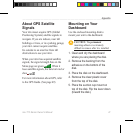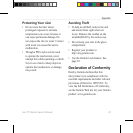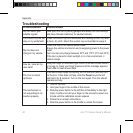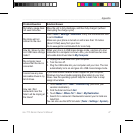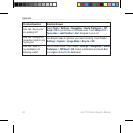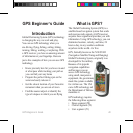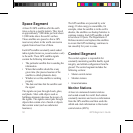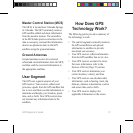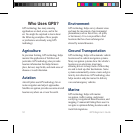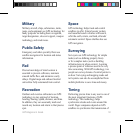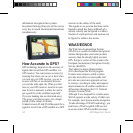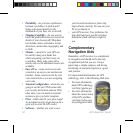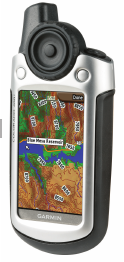
GPS Beginner’s Guide 49
GPS Beginner’s Guide
Introduction
Global Positioning System (GPS) technology
is changing the way we work and play.
You can use GPS technology when you
are driving, ying, shing, sailing, hiking,
running, biking, working, or exploring. With
a GPS receiver, you have an amazing amount
of information at your ngertips. Here are
just a few examples of how you can use GPS
technology.
Know precisely how far you have run and •
at what pace while tracking your path so
you can nd your way home
Pinpoint the perfect shing spot on the •
water and easily relocate it
Get the closest location of your favourite •
restaurant when you are out-of-town
Find the nearest airport or identify the •
type of airspace in which you are ying
What is GPS?
The Global Positioning System (GPS) is a
satellite-based navigation system that sends
and receives radio signals. A GPS receiver
acquires these signals and provides you with
information. Using GPS technology, you can
determine location, velocity, and time, 24
hours a day, in any weather conditions
anywhere in the world—for free.
GPS, formally known as the NAVSTAR
(Navigation Satellite Timing and Ranging)
Global Positioning System, originally was
developed for the military.
Because of its popular
navigation capabilities
and because you can
access GPS technology
using small, inexpensive
equipment, the government
made the system available
for civilian use. The USA
owns GPS technology and
the Department of Defense
maintains it.
GPS technology requires
the following three segments:
Space segment (• 50)
Control segment (• 50)
User segment (• 51)
equipment, the government



